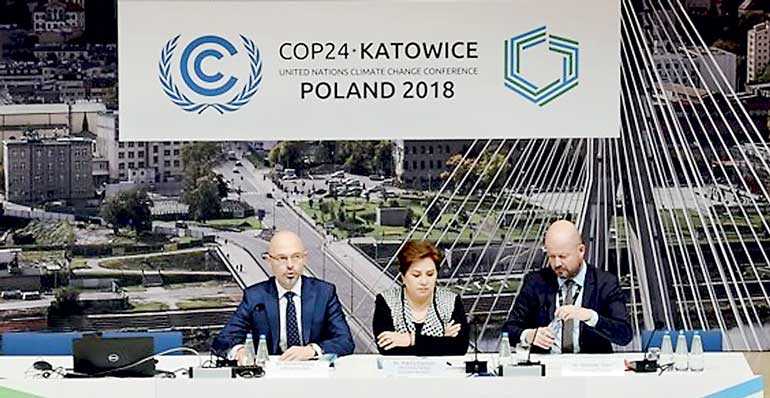Wednesday Feb 25, 2026
Wednesday Feb 25, 2026
Tuesday, 4 December 2018 00:00 - - {{hitsCtrl.values.hits}}

KATOWICE, Poland (Reuters): Political leaders on Monday began arriving in the Polish coal city of Katowice where two weeks of talks have begun to revive the landmark Paris 2015 deal on climate change as dire warnings mount about a lack of action.
Representatives of some of the most powerful countries and biggest polluters will be conspicuous by their absence as the United States has said it is leaving the UN process and China was not expected to send its top politicians.
To maximise the chances of success, technical talks began on Sunday, a day earlier than planned, with delegates from nearly 200 nations haggling over how to implement the broad promises of the Paris deal on moving away from fossil fuel.
The talks in Katowice have been billed as the most important UN conference since the landmark Paris accord as they precede an end-of-year deadline to agree a ‘rule book’ on how to enforce action to limit global warming to between 1.5 and 2 degrees Celsius.
Expectations for the Polish talks are low: The atmosphere of political unity built in Paris has been shattered by a wave of populist governments that place national agendas before collective action.
The host nation Poland remains committed to coal, the most polluting of fossil fuels, calling for a “just transition” to allow communities dependent on fossil fuel help in changing their lifestyle.
The riots in Paris at the weekend, partly in protest at higher fuel taxes, also illustrate the conundrum: How do political leaders introduce policies that will do long-term good for the environment without inflicting extra costs on voters that may damage their chances of re-election?